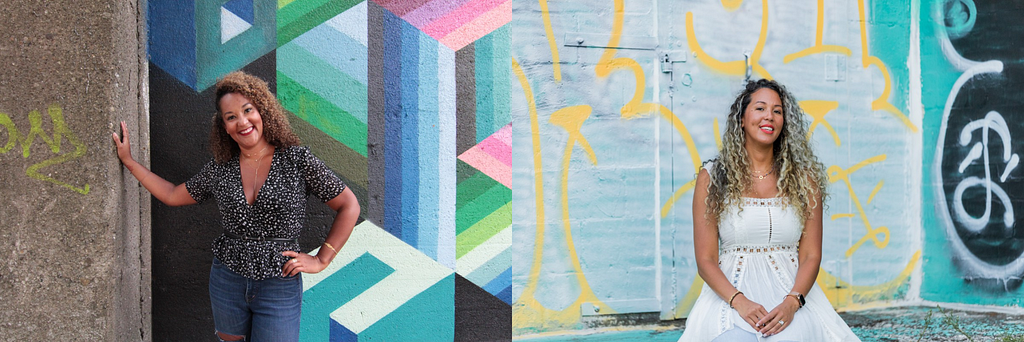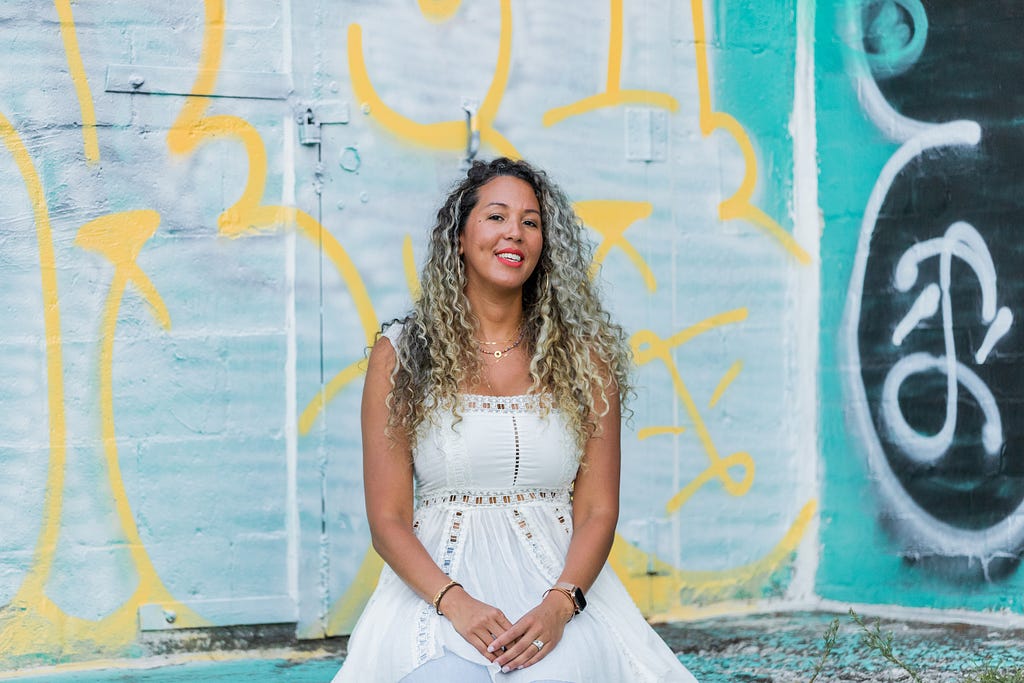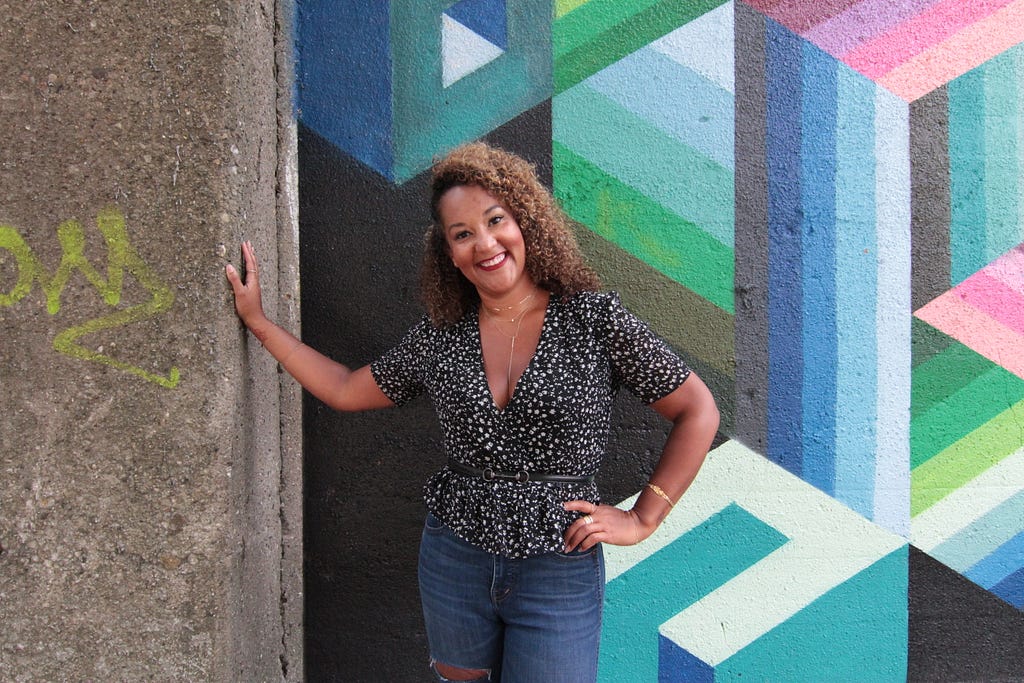Female Disruptors: Rachel Bradley and René Chatfield of ‘Dope Girls Consulting’ On The Three Things You Need To Shake Up Your Industry

I was always told that when someone tells you, “No,” you are asking the wrong person. This has given me a very optimistic view on life and to never stop until you hear the word, YES!
If you don’t have a seat at the table, make your own by creating your own table. Again, if there is ever a time where I feel like someone is limiting me or preventing me from accomplishing something, I don’t get discouraged or defeated, I create and find my own way.
Rachel Bradley is the co-founder of Dope Girls Consulting, a women-owned, diversity led brand and marketing firm for the cannabis industry. A client-focused and results-driven professional, Rachel has over ten years of experience developing and executing successful experiential campaigns for Fortune 100 brands. Rachel has directed integrative and progressive marketing programs for Samsung, Nike, and Roc Nation. While seeking relief for a health condition, Rachel was introduced to the cannabis industry. Dope Girls Consulting grew out of a desire to help people from all backgrounds enter the thriving cannabis market
René Chatfield is the co-founder of Dope Girls Consulting, a women-owned, diversity led firm for the cannabis industry. A devoted sports marketing and branding expert, René has developed innovative engagement strategies for Nike and the WNBA’s Atlanta Dream. She has also produced revenue-driven results through marketing partnerships with powerhouse companies such as Boys & Girls Clubs of America, Human Rights Campaign, Coca-Cola, and City of Atlanta. Through Dope Girls Consulting, René is committed to helping women and minorities build their own brands and companies in the cannabis industry.
Thank you so much for doing this with us! Before we dig in, our readers would like to get to know you a bit more. Can you tell us a bit about your “backstory”? What led you to this particular career path?
We both have sports marketing backgrounds working together on international campaigns for Nike. While seeking relief for our own personal health conditions, we both became interested in the cannabis market.
Rachel: We noticed there was a lack of resources available to small businesses and applicants with less startup capital. Dope Girls Consulting grew out of a desire to help people from all backgrounds enter this thriving industry.
René: I saw firsthand how athletes were being offered harmful pain management options. While learning about cannabis, I realized it was imperative that we develop healthier alternatives and find ways to inspire more minorities to get involved with the cannabis industry.
Can you tell our readers what it is about the work you’re doing that’s disruptive?
The term ‘disruptor’ has become a very popular buzz word used to describe a wide range of people and actions these days. To us a disrupter is an innovator who is able to anticipate and provide real-time solutions for the needs of their customers. They provide value by solving a problem that their customers didn’t even know that they had.
So what problem are we solving? Well, Dope Girls Consulting was created from our own experiences. When we were working on the Illinois wholesale cannabis license application we realized there aren’t a ton of resources for those with BIG dreams and limited funding like ourselves. In the beginning, it was hard to navigate those who wanted to help and those who wanted to take advantage of us. At first glance the two can look almost identical.
Our mission at Dope Girls Consulting is to shift the culture within the cannabis community by helping minority and female owned businesses build their own brands and businesses. This will ultimately result in a more equitable and inclusive industry. We also want to help those who have suffered the most from the war on cannabis. This is something important to us and cannot be forgotten as this industry continues to evolve through the legalization process nationwide.
Can you share a story about the funniest mistake you made when you were first starting? Can you tell us what lesson you learned from that?
René: While on a “Press Tour” of ours, we opened up our networking and took calls from pretty much anyone who wanted to connect with us. We realized very quickly we needed to have a better vetting process to help filter out some of the crazies and those who just wanted to see if we were “real”. It’s been fun utilizing tools like Zoom and Google Meet, they have helped us maximize our networking efforts more strategically and reach way more people over the course of a day then if we were riding around and taking lunches all week.

We all need a little help along the journey. Who have been some of your mentors? Can you share a story about how they made an impact?
Rachel: René has a family member who is a consultant with incredible experience in product development as well as resources and connections to the cannabis industry. When we were first starting out, we would interview several people to find that one perfect lawyer, or that one perfect formulator because we felt like we had to get it exactly right the first time. Then one day, he told us, why don’t you try them both? You don’t have to put all of your eggs in one basket. That advice sounds so simple and easy, but it honestly had not occurred to us that we had that option. We refer back to that advice all of the time when we make business decisions now.
In today’s parlance, being disruptive is usually a positive adjective. But is disrupting always good? When do we say the converse, that a system or structure has ‘withstood the test of time’? Can you articulate to our readers when disrupting an industry is positive, and when disrupting an industry is ‘not so positive’? Can you share some examples of what you mean?
Rachel: There is a quote from George Bernard Shaw that I love. He says, “The reasonable man adapts himself to the world: the unreasonable one persists in trying to adapt the world to himself. Therefore, all progress depends on the unreasonable man.”
It is our belief that not every successful business or product needs to disrupt. That said, too often we want things to withstand the test of time because that is what we are used to, there is comfort in the known. The best disruptors are able to push themselves outside of their comfort zone and give systems the space and freedom needed to evolve into something much greater and better suited to serve the needs of their customer in that moment in time.
René: Disrupting is about evolving and creating a lane for something nonexistent. I don’t know that we are set out to be disrupters any more than us figuring out how to be a part of an industry that wasn’t originally designed to benefit women or minorities. However, if we are considered disruptors, then absolutely it would be positive because we are looking to drive opportunities and bridge gaps in the cannabis industry, which is mainly run and controlled by white men. Some would say we are crazy; however, many are intrigued and support our movement because it will benefit everyone in the long run.
Can you share 3 of the best words of advice you’ve gotten along your journey? Please give a story or example for each.
Rachel: Nothing beats a failure but a try: Many years ago my homegirl said to me, “What do you have to lose? Nothing ever beat a failure but a try.” I realized prior to that moment I was the biggest roadblock to accomplishing my dreams. I was constantly limiting myself by telling myself, “No, it can’t be done, or they are going to say no, so why should I even try?” Now I make it a point to always try. To let someone else tell me no before I accept defeat. And even then, I rarely accept no for an answer. It’s just a starting point for negotiations!
René: I was always told that when someone tells you, “No,” you are asking the wrong person. This has given me a very optimistic view on life and to never stop until you hear the word, YES!
If you don’t have a seat at the table, make your own by creating your own table. Again, if there is ever a time where I feel like someone is limiting me or preventing me from accomplishing something, I don’t get discouraged or defeated, I create and find my own way.

We are sure you aren’t done. How are you going to shake things up next?
We have several tricks up our sleeve right now that we are very excited about. Since we have launched Dope Girls Consulting, we’ve noticed while there are many people with GREAT ideas who want to turn those ideas into a business (or those who already have). Many of these founders have not invested their time in completing the most important basic steps like creating a business plan or developing a marketing strategy when building or starting their business. These days, a great idea is not enough to guarantee success. Business Plans, Financial Analysis & Revenue Goals, Marketing and Brand Strategies are absolutely necessary if you want to see your business succeed. Because affordable help is not easy to find, we have written a series of “How To” templates that we call the “Business Start-up Essentials Tool Kit”. By using our “Dope Girl” guides, you are taken through step-by-step directions on developing the necessary tools for your business. We offer hourly business consulting as well, but if you are starting a new business on a budget, which many of us are, our templates are an easy way to have access to our expertise in an affordable way.
Additionally, we are developing a line of cannabis edibles that we hope to have in dispensaries by the end of the year so be on the lookout for that announcement!
In your opinion, what are the biggest challenges faced by ‘women disruptors’ that aren’t typically faced by their male counterparts?
Oftentimes as females we don’t get the luxury of being called a ‘disrupter’ when we pitch a radical idea or we behave in a way that goes against the norm. Men can come in and disrupt a situation and the ripple effects of that disruption are left to clean up after the fact. It has been our experience that women are held to a higher level of scrutiny. Not only do we have to come with the framework for a radical new methodology for change, but we also need to have the action plan for how we intend to roll it out coupled with flawless execution.
Do you have a book/podcast/talk that’s had a deep impact on your thinking? Can you share a story with us?
René: One of my favorite boos is Living Exponentially by Sheri Riley. Sheri is a former client and mentor who has really helped me get more focus and intentional with my time. Being intentional with your time and understanding time can’t be balanced, it can only be intentionally allocated. Time is going to occur regardless if you want it to. This concept has helped me plan my days better and more efficiently. As a mom of three boys and a wife, this thought process and being more intentional with my time has become very useful especially when things are super stressful and I find myself doing too much.
You are a person of great influence. If you could inspire a movement that would bring the most amount of good to the most amount of people, what would that be? You never know what your idea can trigger. 🙂
Rachel: If we could inspire a movement it would be to shift the mindset of those who still have a negative stigma around the use of cannabis — especially around female use. Every week we hear inspiring stories of people who decided to get into the cannabis industry because of the positive impact that it has had on their life and/or the lives of those around them. There is more to being a cannabis user than the outdated stereotype of the lazy, unmotivated, stoner that lives in their parent’s basement. Highly educated and successful people use cannabis as well, myself included. If you are reading this and thinking, “I am a cannabis user that doesn’t fit into that stereotype,” support our movement by posting a photo of yourself on Instagram or Facebook using the hashtag #aDopeGirlis
Can you please give us your favorite “Life Lesson Quote”? Can you share how that was relevant to you in your life?
Rachel: “Today you are You, that is truer than true. There is no one alive who is Youer than You.” — Dr. Seuss
Dr. Seuss books were some of my favorite books growing up. The first time I heard that quote I knew it was powerful and it stuck with me. But it wasn’t until maybe five years ago when I really began to understand the magnitude of what he was saying. Growing up as a bi-racial child in the 80’s, I never really felt like I fit in anywhere. The impact of that feeling led me to constantly wanting to look like someone else, act like someone else, be someone else. It took me a long time to understand (and believe) that one of my biggest superpowers is the fact that there is no one else that can be me better than me. So now I refuse to do anything that doesn’t provide the space for me to be 100% authentically me.
René: “Overcoming life’s challenges and adversities is one of your biggest advantages” — Michelle Obama.
As a teen mom, I became pregnant with my first son at 15. On the day my son was born I promised myself I would never let anything stop me from showing him anything is possible regardless of our circumstances. When things are tough in my life, I keep those thoughts in mind and remember how many people from my past who said I would never graduate from high school or become anything because I was a young mom. I’ve spent the last 25 years, proving all of my haters wrong!
How can our readers follow you online?
Website: wearedopegirls.com
LinkedIn: https://www.linkedin.com/company/dopegirlsconsulting/
IG: https://www.instagram.com/weare.dopegirls/
Twitter: https://twitter.com/wearedopegirls
This was very inspiring. Thank you so much for joining us!
Female Disruptors: Rachel Bradley and René Chatfield of ‘Dope Girls Consulting’ On The Three Things was originally published in Authority Magazine on Medium, where people are continuing the conversation by highlighting and responding to this story.

